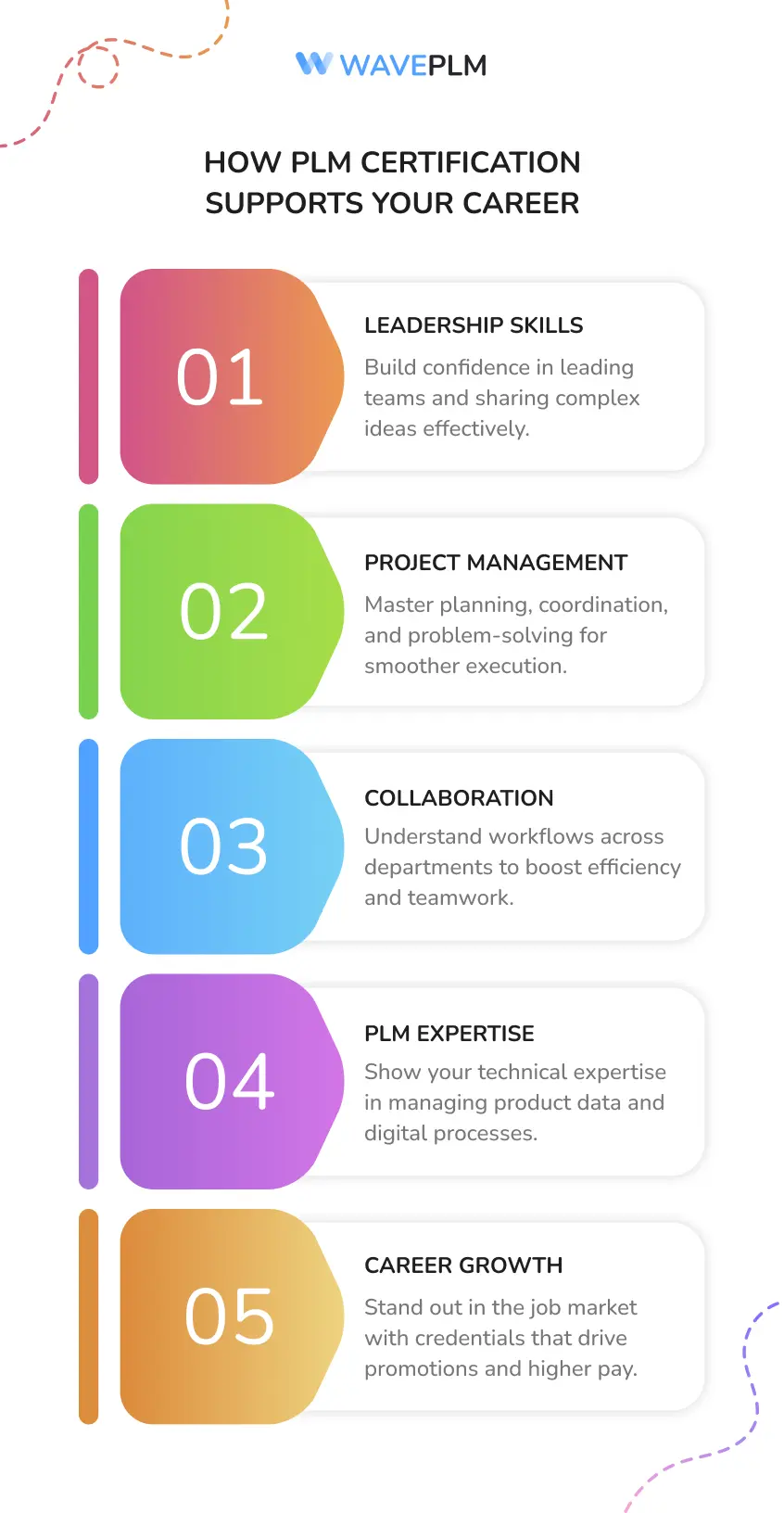
1. Introduction: Why PLM Knowledge Matters in 2025
Product Lifecycle Management (PLM) defines how modern organisations create, manage, and deliver products. It connects people, processes, and data across departments—from concept and design to manufacturing, distribution, and maintenance. PLM serves as the backbone of successful product management, offering visibility and control throughout the product life cycle.
In today’s digital world, industries such as manufacturing, fashion, engineering, and automotive face constant pressure to innovate faster while maintaining accuracy and compliance. PLM helps teams coordinate better, reduce waste, and ensure that every stakeholder—from designers to supply chain managers—works within a unified system.
As companies move toward cloud-based collaboration and digital transformation, PLM knowledge has become a strategic advantage. Professionals who understand how to manage product data and streamline project workflows can make smarter decisions, enhance productivity, and lead teams with confidence. Learning Product Lifecycle Management equips individuals to take ownership of complex projects and align technology with business goals.
In 2025, demand for PLM expertise continues to rise as companies seek efficient ways to manage their products’ digital twins, improve sustainability, and stay ahead of competitors. Whether you are in engineering, product design, or business management, mastering PLM will prepare you for leadership roles and innovation-driven success.
2. What Is a PLM Certification?
A PLM certification is a professional qualification that verifies your skills in using, implementing, and managing Product Lifecycle Management systems. It demonstrates that you have a solid understanding of data management, project coordination, and process optimization. Obtaining a certification boosts your credibility and makes you stand out in a competitive job market.
These certifications generally fall into two main categories—vendor-specific and general programs.
|
Type |
Description |
Examples |
|---|---|---|
|
Vendor-Specific |
Focuses on specific PLM software platforms with in-depth practical training. |
Dassault Systèmes (ENOVIA), Siemens Teamcenter, PTC Windchill, Oracle Agile |
|
General |
Covers universal PLM concepts and methodologies applicable across multiple industries. |
University programs, Coursera, Udemy, LinkedIn Learning |
Vendor-specific courses help professionals specialize in the tools their organization already uses, offering hands-on experience in real PLM systems. General PLM courses, on the other hand, build a broader foundation, teaching principles that apply to various tools and industries.
A strong certification program often includes both theoretical lessons and applied projects, ensuring learners develop communication skills, leadership, and technical expertise in data and project management.
3. Best PLM Certifications and Courses in 2025
The PLM education landscape continues to grow. The following are some of the most respected PLM certification online and in-person options available in 2025. Each course provides flexible access, modern training materials, and project-based learning so that professionals can study at their own pace.
|
Certification / Course |
Provider |
Type |
Ideal For |
|
Dassault Systèmes PLM Certification |
Dassault Academy |
Vendor |
Engineers, CAD designers, mechanical teams |
|
Siemens Teamcenter Certification |
Siemens Learning Center |
Vendor |
Industrial users, manufacturing specialists |
|
PTC Windchill Training |
PTC University |
Vendor |
Product managers, data managers, engineering leaders |
|
Oracle Agile PLM Training |
Oracle University |
Vendor |
Manufacturers, supply chain experts, risk analysts |
|
Coursera – Product Lifecycle Management Course |
University of Illinois |
General |
Students, early-career professionals |
|
Udemy – PLM Fundamentals Course |
Independent |
General |
Beginners, small business owners |
|
LinkedIn Learning – PLM Foundations |
|
General |
Teams, employees seeking upskilling |
Each course builds strategic thinking, enhances technical abilities, and provides an opportunity to learn product lifecycle management in both theoretical and applied formats. By completing these programs, learners gain professional certification credentials that signal expertise to global employers.
4. How to Choose the Right PLM Course
Selecting the right PLM course depends on your career goals, learning preferences, and the technology used in your organization. Before enrolling, evaluate your current expertise, time commitment, and intended outcomes.
|
Factor |
What to Look For |
|
Course Type |
Choose between software-focused vendor training or broader concept-based programs. |
|
Duration and Flexibility |
Select a course that fits your schedule and allows self-paced learning. |
|
Hands-On Experience |
Ensure it provides demo environments or real software access for practice. |
|
Recognition and Credibility |
Look for globally recognized institutions or software providers. |
|
Industry Relevance |
Match the training to your professional field—Wave PLM for fashion, Siemens for industrial design, etc. |
A good certificate program should combine theory with hands-on projects that mimic real product management environments. Fashion brands, for example, often prefer Wave PLM due to its agile design workflows and intuitive user interface. Engineers may lean toward Dassault Systèmes or PTC Windchill for their mechanical design capabilities. Matching your PLM training with the right software ecosystem ensures that your skills directly benefit your current and future roles.
5. How PLM Certification Supports Your Career
Completing a Product Lifecycle Management certification enhances your professional growth and positions you as an expert in digital operations. Certified professionals often experience faster promotions, higher salaries, and broader job prospects.
Benefits of PLM Certification:
- Strengthens your leadership and communication abilities.
- Builds project management and problem-solving expertise.
- Improves cross-team collaboration and understanding of workflows.
- Demonstrates your mastery of product data management systems.
- Enhances your resume and positions you as a valuable asset to your company.

Popular Career Roles After PLM Certification:
|
Role |
Responsibilities |
|
PLM Analyst |
Oversees process improvements, manages data integration, and supports software performance. |
|
Product Data Manager |
Maintains version control and ensures accurate product documentation. |
|
Fashion PLM Coordinator |
Connects creative and production teams to streamline product design cycles. |
|
Manufacturing Engineer |
Integrates CAD, ERP, and PLM tools to optimize workflows. |
|
Product Manager |
Leads product development, aligning project goals with business strategy. |
|
PLM Consultant |
Guides organizations in implementing PLM systems and training employees. |
Professionals who hold certifications gain access to a network of PLM experts, continuous learning resources, and global career opportunities. They become essential in bridging technology, design, and management functions, a skill set increasingly vital in global markets.
6. Integrating PLM Learning with Real Projects
True mastery of PLM requires applying what you learn in real or simulated projects. Most certificate programs include project-based assessments that test your ability to handle data, plan product launches, and analyze risks.
Practical Ways to Apply PLM Knowledge:
- Experiment with free or educational PLM software versions.
- Build mock product data structures to simulate real workflows.
- Collaborate on open-source PLM projects or academic research.
- Practice risk management and change tracking on sample projects.
Modern tools like Wave PLM provide comprehensive environments to practice user interface navigation, version control, and digital collaboration. Through these experiences, you can refine your critical thinking and gain a better understanding of how PLM supports successful product development.

Comprehensive PLM Learning Path:
|
Step |
Learning Focus |
|
|
1 |
Learn core Product Lifecycle Management concepts |
LinkedIn Learning, Coursera |
|
2 |
Explore software fundamentals through vendor demos |
Siemens Teamcenter, Oracle Agile |
|
3 |
Practice managing digital product data |
Wave PLM or Dassault ENOVIA |
|
4 |
Conduct a project simulation involving risk and change management to experience how collaborative design and PLM software can enhance team efficiency. |
University or internal company projects |
|
5 |
Earn a professional certificate and update your portfolio |
Vendor or accredited program |
7. Why Invest in a PLM Certificate Program
A PLM certificate program is one of the best career investments you can make if you want to stay ahead in digital manufacturing and product innovation. It teaches both the theoretical framework and technical implementation of PLM systems.
Students gain strategic thinking skills that extend beyond software use. They learn how to manage entire product life cycles, communicate across teams, and integrate PLM data into larger business strategies. The combination of leadership, communication, and technology makes certified professionals key contributors to organizational growth.
Advantages of Online PLM Courses:
- Flexible study schedules that fit your own pace.
- Direct access to instructors and learning communities.
- Constant updates on industry trends and software advancements.
- The ability to apply new skills immediately in your current job.
A strong PLM certificate not only boosts your expertise but also enhances your understanding of sustainability, supply chain collaboration, and innovation management. Many graduates go on to lead cross-functional teams and mentor others within their organization.
8. Conclusion
Mastering Product Lifecycle Management is essential for modern professionals who want to build resilient and innovative careers. A PLM certification offers a path to understanding the intersection of design, technology, and management.
Whether you are an engineer refining processes, a designer managing digital collections, or a project leader driving innovation, PLM training helps you develop job-ready skills and a deeper knowledge of product data management. It empowers you to manage complexity, make strategic decisions, and enhance business performance.
Take your next step today. Enroll in a top-rated PLM certification online program and transform your career in product lifecycle management – one project at a time.





Leave a Reply